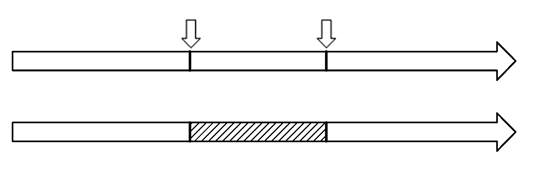Genome editing for altered protein function
Editing of a coding sequence by two site-specific nucleases that causes a frameshift
KeyGene reference: P203
Invention
Site-specific nucleases such as RNA-guided CRISPR-CAS proteins are generally used in genome editing. Double-strand breaks induced by site-specific nucleases are repaired by mechanisms that may create indels at the cleavage site, often resulting in dysfunctional genes. The invention relates to genome editing of a coding sequence (CDS) by two site-specific nucleases that together cause a frameshift in only a specific stretch of the CDS thereby, thereby altering protein function rather than eliminating it.
Benefit
 Genome editing technologies are rapidly emerging. By the combined use of two site-site-specific nucleases targeting a single coding sequence, the present invention allows for the modification of short stretches of amino acids within a single protein, rendering a protein with an altered function. This is in particular beneficial for proteins that need to be present for survival, but for which an altered function is desired.
Genome editing technologies are rapidly emerging. By the combined use of two site-site-specific nucleases targeting a single coding sequence, the present invention allows for the modification of short stretches of amino acids within a single protein, rendering a protein with an altered function. This is in particular beneficial for proteins that need to be present for survival, but for which an altered function is desired.
Vision
Understanding the function of genes is essential for the efficient breeding of improved crops. Efficient targeted genome editing technologies are important research tools in gene validation and may be used for the introduction of new traits in crop germplasm. The present invention contributes thereto.
Patent
Click on the link for an overview of the patent family in the European Patent Register: WO2019/048618
Please note that the European Patent Register may not be extensive and/or accurate, for which KeyGene is not responsible. Please contact your patent expert for further information.
Contact us
Would you like to explore the possibilities for obtaining a license for this technology? You can contact our licensing team by mail.
Would you like to know more about our technologies and licensing possibilities? Visit our webpage about Licensing KeyGene’s proprietary technologies.